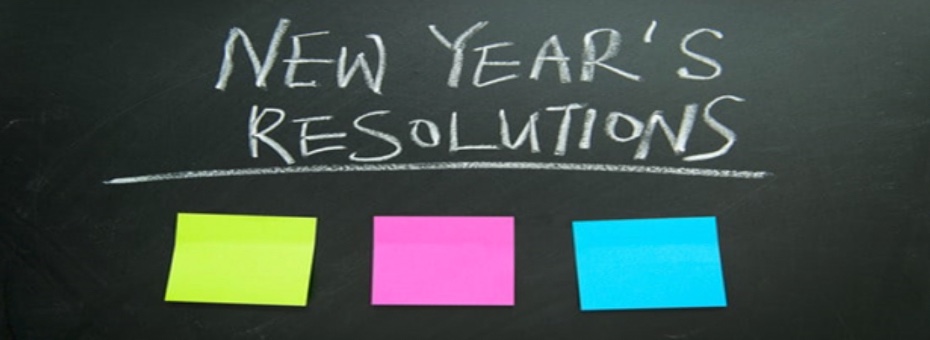2020! What a year, right? The launch of the new decade was beset with political, environmental, social, and health crises. Recall the protracted election season, severe wildfires in the West and hurricanes in the Gulf Coast, the tragic killing of George Floyd, and racial unrest–not to mention a global viral pandemic. Hopefully, we can look forward to a brighter future with less divisive politics, fewer natural disasters, more racial justice, and the worst of the coronavirus behind us, along with an effective vaccine within reach. As much as we might like to forget about the troubling problems that plagued us in 2020 and return to the way life was before these crises upended our daily lives, we know ignoring the crisis (take your pick) will not magically cause them to disappear. Just as lean thinkers joined humanity during the holiday season to celebrate and be thankful for our hard-earned successes and perseverance during a particularly challenging 2020 (following CDC Covid-19 safety guidelines, of course), we also began to reflect on lessons learned, in true kaizen fashion, and consider the most impactful problems to tackle in 2021.
The new year does provide an opportunity to start anew; however, it does not mean we get to sweep the last year’s problems under the rug. Michael Balle and Dan Jones, co-authors of The Lean Strategy, explain that the essence of lean is to figure out the right problems to solve and develop a culture to solve them. There is no shortage of problems facing society. In fact, some of our most pressing problems are no longer hidden but are clearly exposed, like the backside of a patient wearing a paper-thin hospital gown that is a tad bit too small. Rather than trying to cover up, we would be better served by embracing our vulnerability bravely and fully to allow for a more effective examination of our problems so they can be properly addressed.
Our societal problems are complex and have long-term implications. Denial is no longer a sustainable option. Fixing them will require good old fashion problem-solving and working together for the greater good; that is, the application of lean thinking and practice. Where should we begin?
Grasping the Situation
We can look to our newly elected “problem-solver-in-chief,” President-elect Joe Biden, for some guidance. During his acceptance speech, he pointed out the following list of problems as top priorities for the incoming administration:
- Control the coronavirus
- Build prosperity
- Secure your family’s health care
- Achieve racial justice and root out systemic racism in this country
- Save the climate
- Restore decency, defend democracy, and give everybody in this country a fair shot
These issues of national concern could benefit from the attention of the lean thinking community.
Mr. Biden added, “Too many dreams have been deferred for too long. We must make the promise of the country real for everybody—no matter their race, their ethnicity, their faith, their identity, or their disability. America has always been shaped by inflection points—by moments in time where we’ve made hard decisions about who we are and what we want to be.”
These are not Republican or Democratic issues; these are societal problems impacting all of us. Lean thinkers have a major role to play in sorting out these societal problems. The spaces for lean thinkers to do scientific thinking should not be limited to factories, hospitals, or other traditional domains. The systemic and systematic thinking and change management skills we possess and our experience coaching cross-functional teams across various divisions are crucial to solving complex societal problems.
Using a Problem-Solving Framework to Lead
We saw the value of leaders having such skills during the initial stages of the Covid-19 outbreak as governors around the country shifted into crisis problem-solving mode. As all crises do, the pandemic, revealed the problem-solving capabilities of leaders or the lack thereof. Two types of leaders emerged: those who use a problem-solving framework and those who do not (instead leading by gut and shooting from the hip). We were reassured by leaders who humbly admitted they did not have all the answers but displayed a problem-solving structure we recognize to unpack this unprecedented problem. Reminiscent of a well-run kaizen event report out, they shared current data, discoveries, identified gaps, and provided status updates during their daily press conferences, accompanied by team members with expertise in various areas. Problem-solver governors used common problem-solving tools of the trade like metrics, tables, bar charts, and histograms to highlight “hot spots” and explain how and why they were implementing certain countermeasures and standard daily work. They shared the changes in the data they used to adjust mitigation policies, like wearing masks and social distancing six feet apart, to slow virus spread. We should all recognize “Plan Do Check Act” (PDCA) when we see it in action.
Many of us watched with grave concern as other “go-with-the-gut” governors encouraged their citizens to proceed as if it were business as usual–as if the problem would somehow resolve itself. They claimed they were turning the corner with no data to confirm such wishful thinking. These leaders lacked any recognizable problem-solving framework and showed no semblance of grasping the situation, targeted root cause analysis, pareto charts, or countermeasure experimentation (PDCA). How might their results have been more favorable today with fewer deaths and infections if they knew how to apply lean thinking and practices to address these complex problems? How much more reassured and well-informed to make decisions that were in their best interest would their citizens (customers) be if leaders had properly defined the problem, grasped the situation, value stream mapped their response processes, and used an effective communication tool like a one-page A3 to communicate the status of their improvement efforts and action plans including responsibilities of various departments, agencies, and citizens? If ever our society needed strong lean thinking leaders and change agents, it is now!
Expanding the Use of Lean Thinking and Practice
Jim Womack, Lean Enterprise Institute founder, got it right when he pointed out in a recent Virtual Lean Learning Experience what the lean community must do in the future:
- Respond to current challenges
- Find our voices in new spaces
- Take new leaps to close gaps
- Convert waste to value with better worker, customer, and societal experiences
To that end, lean thinkers and leaders will need to forge new relationships beyond the familiar and comfortable spaces we are used to and assemble more diverse teams–functionally, culturally, and demographically (race, ethnicity, gender, and so on). Lean thinkers and leaders answered the call in the past when our country needed us.
- During World War II, lean thinkers like Dr. W. Edward Deming taught PDCA to a more diverse workforce with the influx of women who courageously entered not-always-welcoming factories to fill positions left vacant by men serving in the war.
- Those women lean thinkers rose to the occasion in their quality circles to provide desperately needed additional production capacity and improve processes to manufacture equipment, supplies, and munitions for U.S. troops abroad.
- When the healthcare industry needed a proven change management process and new leadership behaviors to engage doctors, nurses, support staff, and managers in a better approach to provide a higher quality of care, reduce millions of incidents of medical harm, and improve patient access, lean thinkers and leaders answered the call.
- In 2007, when the EPA warned of rising energy costs, an expanding environmental footprint, and climate change, again, we answered. Many companies responded by applying kaizen to their environmental and conservation challenges. I was proud to be a part of the team that worked together to help create The Environmental Professional’s Guide to Lean & Six Sigma.
There is more continuous improvement work to be done in healthcare and on the environment. That work is well underway, and we are making strides in the right direction.
A Call to Action
Now, our country needs lean thinkers and leaders to lend a hand and their problem-solving prowess in another societal challenge–to achieve racial justice and root out systemic racism. It has been my honor to lead scores of team members over the years in the trenches in the manufacturing and healthcare arenas, to practice kaizen and convert waste to value to improve customer experiences. I will continue to do so.
In fact, in the first quarter of 2021, guided by the same principles and a commitment to “be the change I want to see in the world,” I will redouble my efforts to use lean thinking and practice to help organizations eradicate systemic racism. Working with a dynamic Diversity, Equity, and Inclusion (DEI) leader Valeria Sinclair-Chapman, PhD, we will help change-agents–diversity officers, corporate leaders, and human resources managers–engage their entire workforce to meet this challenge.
In the meantime, lean thinkers, I hope your New Year’s resolutions will also aim to serve society, live up to the demands of this historical moment, and bend towards the true north of justice and opportunity for all.





